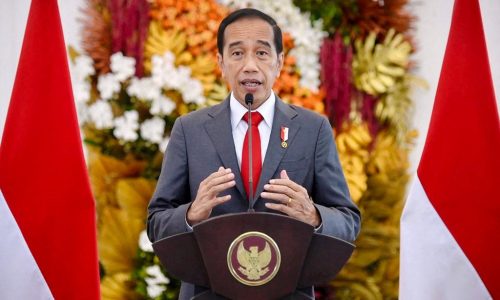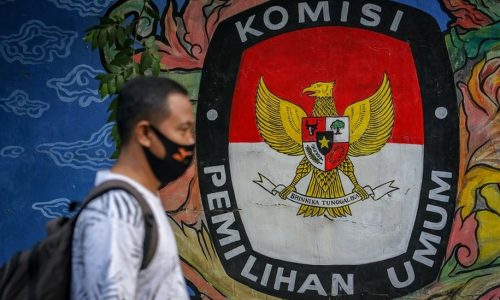The idea of Prabowo Subianto and Gibran Rakabuming Raka, the presidential and vice-presidential candidates in the 2024 elections, to separate the Directorate General of Taxation (DJP) and the Directorate General of Customs and Excise (DJBC) from the Ministry of Finance has generated concern from experts.
The idea, which is part of the candidate pair’s programs if officially inaugurated as the future president, will be done through the establishment of the National Revenue Agency, which will be directly under the president. The plan will be implemented gradually upon having the necessary regulations and the new institution.
Nailul Huda, an economist at the Center of Economics and Law Studies (Celios), said the policy would not be effective in increasing the state revenue in view of many internal aspects of the directorate general of taxation and the directorate general of customs and excise that need improvement.
According to Nailul, the creation of a new agency directly under the president will strengthen the positions of individuals within the agency and may exacerbate internal issues.
“My concern is based on recent cases, where their internal structure is still very fragile. Establishing an agency without addressing internal issues first will only worsen the situation,” said Nailul.
On the other hand, the separation of the two directorates from the Ministry of Finance will reduce the authority of the future Finance Minister. Thus, there is a concern that many professionals may be unwilling to oversee the Ministry of Finance.
“I’m worried that it will be filled by politicians who will erode public and investor trust. This should not happen,” he said.
Senior Economist at the Institute for Development of Economics and Finance (Indef), Tauhid Ahmad, on the contrary, believes that the establishment of the revenue agency will require a significant amount of time and an extraordinary amount of money.
“It will certainly require an extraordinary amount of money for infrastructure, plus employee salaries, and other things. While the problem is not there. There is a problem with expanding economic sectors that have not been touched by taxes, so it’s not because there isn’t,” he said.
Tauhid even estimates that this plan will take two to three years ahead. Meanwhile, the president’s term is only five years in one period.
“The new agency can be effective in the third and fourth years if the target is to boost the tax revenue program. Losses in time and cost,” said Tauhid.
On the other hand, Prabowo-Gibran also targets a tax ratio to Gross Domestic Product (GDP) of 23 percent. Meanwhile, until 2023, Indonesia’s tax ratio is only about 10 percent of GDP.
Tauhid assesses that to boost this tax ratio, the government must focus on policies and implementation in the field first. Not just about institutions, but also improvements in technology and other aspects.
While Nailul suggests boosting tax revenue in the mining sector, which currently has minimal contributions, but its contribution to GDP is quite significant.
Not only that, Nailul also encourages the government to increase revenue from individual taxpayers, whose current contribution is still below 1 percent. “Wealth tax for the rich can be implemented, which I think can improve our tax performance,” he said.
An old policy returning
The separation of the directorates from the Ministry had been proposed several times. In 2019, presidential and vice-presidential candidates Prabowo Subianto and Sandiaga Uno once proposed the same idea, with the reason that it was one effective way to increase tax revenue.
In 2023, Fadel Muhammad, Deputy Speaker of the People’s Consultative Assembly (MPR), proposed the same idea to separate the directorate from the Ministry of Finance by proposing a new agency directly under the president.
If approved, the President will have the full authority over the directorates and can choose anyone to manage them in the future. However, ithe idea has been rejected several times by the Ministry of Finance.









